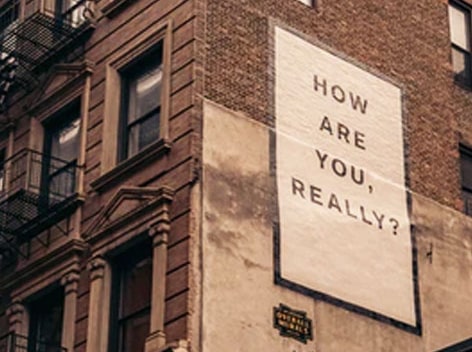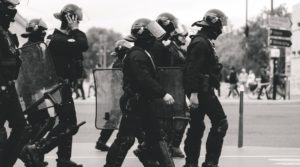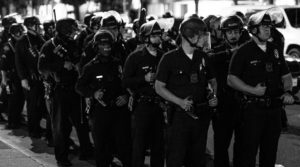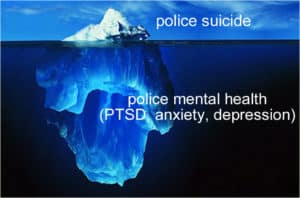
Maintaining good mental health is a struggle that millions of Americans go through each year. It is an issue which has begun to gain more acceptance in public discourse, but for many acknowledging and dealing with mental health problems continues to carry a stigma which prevents them from doing so. This is true for law enforcement as well.
Last summer when riots were engulfing major cities around the country, Law Enforcement professionals were pushed to the brink, physically and mentally. While the physical risk accepted by police and other law enforcement is an obvious part of the job, the mental stress often goes undiscussed. When law enforcement becomes increasingly demonized and their jobs increasingly more dangerous due to anti-police sentiment, an incredible toll can be taken on officers’ mental health.
For instance, last summer at the height of George Floyd inspired protests, riots, and defund the police movements, Atlanta PD was involved in the fatal shooting of Rayshard Brooks. Police and Brooks were in a physical altercation as Brooks refused to comply, physically struggled with the officers, and attempted to flee. In response, more riots ensued, public officials condemned police conduct, and officers were charged by the local DA. The reactionary condemnation of police by local government before the issue was investigated and had its day in court led to mass “call-outs” at the department and officers walking off their shifts, reported the New York Post.
Good mental health is imperative to officers doing their jobs safely and effectively. It is also essential in making sure the communities and civilians they interact with are safe and policed appropriately. Supporting law enforcement in their work and providing resources for those who may be struggling are key first steps in protecting their mental health.
FAQ's
Understanding how many people are struggling with mental health issues will always remain a difficult task as long as stigma surrounds the subject. But recent data suggests that a significant number of police officers struggle with symptoms of poor mental health. Jama Network conducted a survey of 434 police officers which discovered that 12% had a lifetime mental health diagnosis and 26% reported current symptoms of mental illness. Of these officers, 17% had sought mental health care services in the past 12 months. The officers were screened for symptoms of depression, anxiety, and posttraumatic stress disorder, as well as current mental health symptoms (using validated screeners of depression, anxiety, posttraumatic stress disorder, and suicidal ideation or self-harm) and mental health care use in the past 12 months.
The National Officer Safety and Wellness Group (OSWG) is a resource formed by the COPS Office within the DOJ to raise awareness, increase knowledge, and offer resources to law enforcement agencies on the issue of mental health in law enforcement. The group was formed in 2011 bring attention to the safety and wellness needs of law enforcement officers following a number of high-profile ambushes on police.
In 2017, the 115th Congress passed the Law Enforcement Mental Health and Wellness Act. The bi-partisan effort, signed into law by the Trump Administration, “makes funding (via grants) available for peer mentoring pilot programs, provides funding for studies looking at the actual value/impact of crisis hotlines and annual mental health checks,” notes Officer.com. The act also called for a report to Congress on mental health practices and services in the U.S. Departments of Defense and Veterans Affairs that could be adopted by federal, state, local, or tribal law enforcement agencies
Related Articles

How to Fix the Mental Health Epidemic Plaguing Our Police Officers
In 2019, no fewer than nine police officers working in the New York Police Department

Law Enforcement Mental Health Statistics
The mental health of police officers is often something that gets overlooked. However, it is

Mental Health and Wellbeing of Police Officers
The issue of mental health has become front and center in American society. Mental health

Eliminating the Stigma of PTSD Treatment for Our Police
The Stigma of PTSD Treatment: Police, like combat veterans, suffer through dramatic trauma that affects
